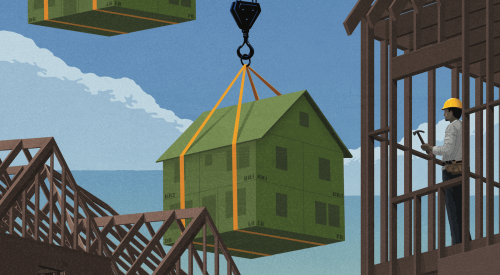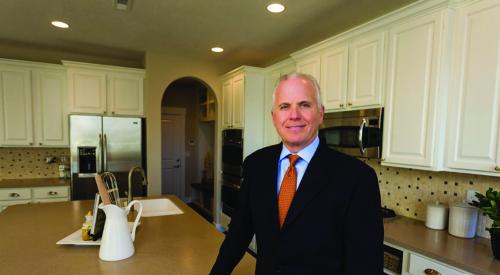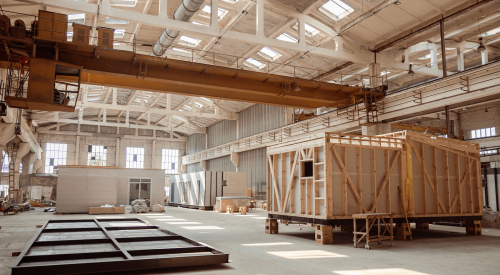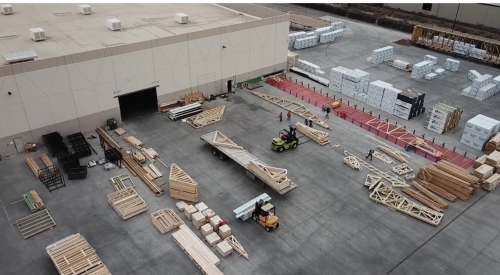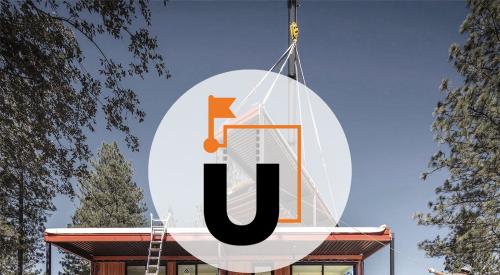The American Enterprise Institute recently published its study entitled "Will home building finally evolve? Lessons from the American experience with factory-built housing."
The aim of the study is to track the history of disruption in traditional, site-built residential construction in the U.S. in order to understand the future potential of innovative building methods that may ease affordability pressures. AEI's paper argues that mass production is unlikely to add "significant cost savings," and emphasizes the potential for factory-built housing to create those cost savings.
While the entire home is rarely prefabricated in the US, we do find an increased reliance on prefabricated components in site-built housing over time, resulting in some cost savings and increases in construction quality. Finally, we argue that the history of home building demonstrates that rapid adoption of prefabrication or more efficient production processes by home builders are more likely to be driven by market competition than by economies of scale within consolidated firms or by government intervention.

